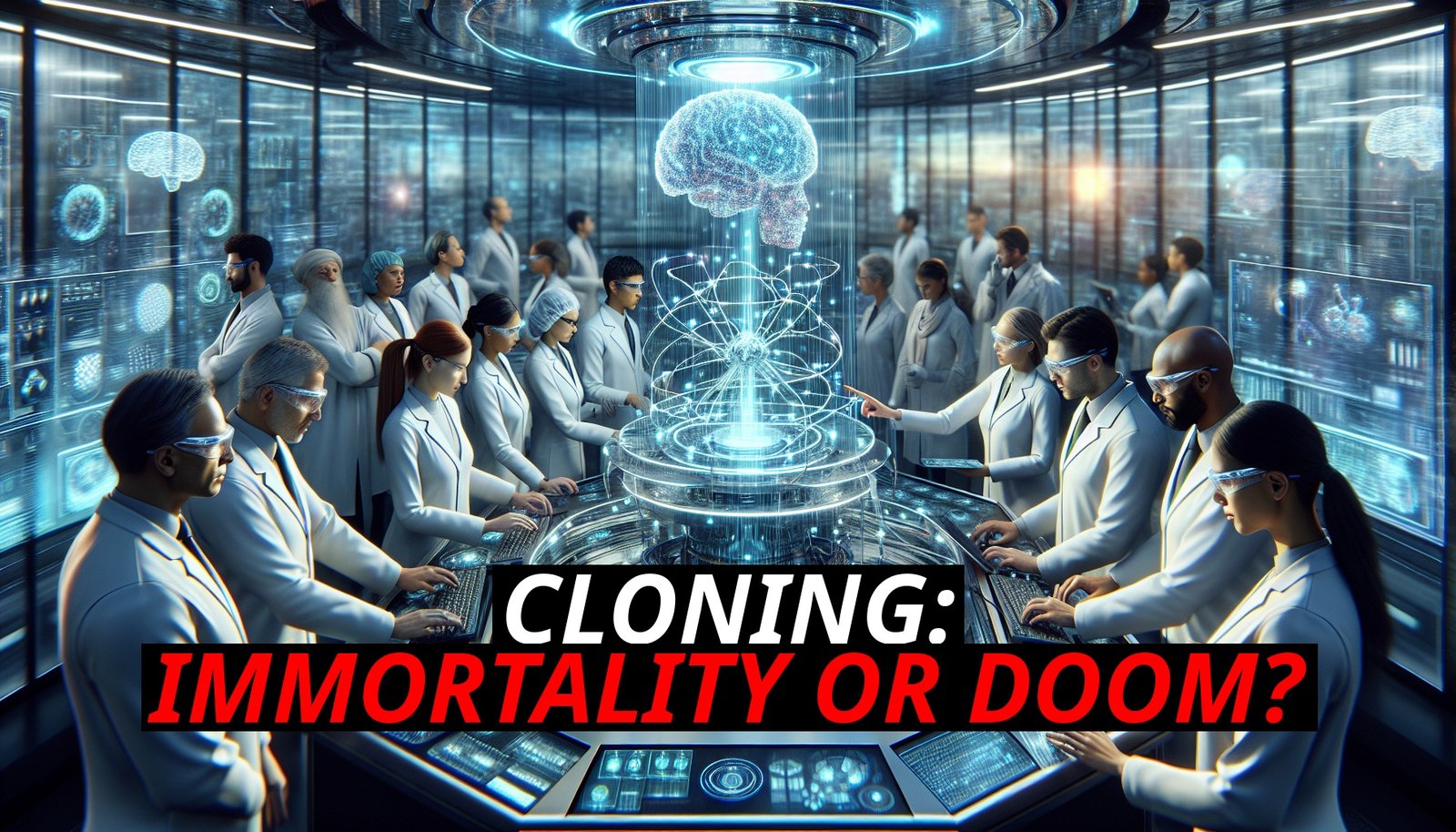Imagine waking up one day to find that you’re not the only one living your life. There’s someone else out there who looks like you, thinks like you, and even remembers everything you’ve ever done—but they’re not you. They’re a clone, created to carry on your legacy, your work, and your life after you’re gone. It sounds like a dream come true for those afraid of death, but is it really? Memory cloning, the idea of creating a perfect replica of a person complete with all their memories, has captivated our imaginations, but it also brings with it a host of unsettling questions. Is this technology a dystopian dream, promising to extend life beyond its natural limits, or is it a nightmare that strips away the essence of what it means to be human?
The Allure Of Living Forever
At its core, the concept of memory cloning taps into one of humanity’s deepest desires: the fear of death and the wish to live forever. The idea that we could create a clone with all our memories, essentially allowing us to “live on” after our physical bodies fail, is both fascinating and terrifying. It offers the promise of continuity—no longer would our lives be cut short by death; instead, we could continue to exist, albeit in a new form.
But this dream of immortality is built on a shaky foundation. While a clone might inherit our memories, it is not truly us. The clone, despite sharing our thoughts and experiences, is a separate entity with its own consciousness. The original person still dies, and with them, their unique perspective on the world. This raises a disturbing question: If the clone is not truly us, then what is the value of memory cloning? Is it a way to cheat death, or just a way to create a living copy of ourselves that lacks the soul and essence of the original?
The Dystopian Potential Of Memory Cloning
The idea of memory cloning also opens the door to a range of dystopian possibilities. In a world where cloning becomes commonplace, what happens to our sense of identity and individuality? If everyone can be cloned, does that make us all replaceable? And if so, what does that mean for our value as individuals?
In a dystopian society, memory cloning could be used as a tool of control. Governments or corporations might use cloning to maintain power, creating clones of influential leaders to ensure that their policies and ideologies live on indefinitely. This could lead to a world where true change and progress are stifled, as the same ideas and beliefs are perpetuated through endless cycles of cloning. It’s a chilling thought: a world where the same people—or rather, their clones—rule forever, with no room for new voices or perspectives.
Moreover, memory cloning could lead to a society where people are no longer valued for their uniqueness. If everyone can be cloned, then everyone is, in a sense, replaceable. This could erode our sense of self-worth and individuality, leading to a world where people are treated as commodities, valued only for their usefulness and not for their humanity.
The Ethical Quagmire
Memory cloning also raises significant ethical questions. Is it right to create a being that inherits another person’s memories and life experiences? What about the clone’s own identity and autonomy? A clone, despite having the same memories as the original person, is still a new individual with their own potential for growth and development. However, they are burdened with a past that isn’t truly theirs, and they may be expected to live up to the original person’s life and legacy. This can lead to an identity crisis, where the clone struggles to reconcile their own desires and aspirations with the expectations placed upon them.
There’s also the question of consent. When creating a clone with someone’s memories, does the original person have the right to impose their life on another being? And does the clone have the right to reject the life that has been thrust upon them? These ethical dilemmas challenge our understanding of life, identity, and the boundaries of technology.
The Nightmare Of Dehumanization
Perhaps the most disturbing aspect of memory cloning is the potential for dehumanization. As we begin to treat memories and identities as things that can be copied and transferred, we risk losing sight of the unique value of human life. Memory cloning reduces a person to a collection of data that can be replicated, stripping away the richness and complexity of human experience.
In a world where memory cloning is possible, we might begin to see people not as individuals with their own thoughts and feelings, but as mere vessels for memories. This dehumanization can have far-reaching consequences, leading to a society that is less compassionate, less empathetic, and more focused on efficiency and control than on the well-being of its people.
Conclusion: A Dream Or A Nightmare?
Memory cloning presents a tantalizing vision of the future—a world where death can be bypassed, and life can continue indefinitely. But this dream comes with a host of ethical, psychological, and societal challenges. While the idea of living on through a clone might seem appealing, it raises profound questions about identity, individuality, and the value of human life.
In the end, memory cloning might not be the utopian dream it appears to be. Instead, it could be a dystopian nightmare that strips away the very qualities that make us human. As we explore the possibilities of this technology, we must carefully consider the costs and consequences, ensuring that we don’t sacrifice our humanity in the pursuit of immortality.













